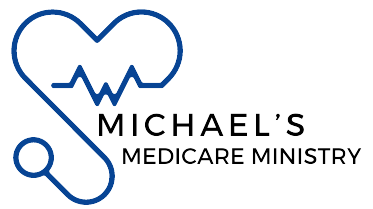Choosing the appropriate health coverage is a crucial choice that impacts your access to medical treatment as well as your financial security. It might be difficult to choose the plan that best suits your requirements when there are so many possibilities available. You will find important advice and factors to take into account in this article to assist you in selecting the best health insurance service in Beaverton.

Recognize Your Needs for Health
Examine Your Past Medical Records
It’s important to evaluate your present health and medical history before deciding on a health plan. Take into account elements like:
- Chronic Conditions: Make sure the plan sufficiently addresses your requirements for continuous care if you have any chronic diseases or conditions.
- Medication: Compile a list of the drugs you currently use and see whether the plan’s formulary covers them.
- chosen Physicians and Hospitals: Verify that the network of the plan includes your chosen medical professionals.
Foresee Future Medical Requirements
Consider future health requirements that may arise, such as family planning, scheduled operations, or conditions that may need specialist treatment. Peace of mind may be obtained by selecting a plan that provides comprehensive coverage for a variety of health circumstances.
Compare Different Plan Types
Organization for Health Maintenance (HMO)
Choosing a primary care physician (PCP) and obtaining referrals to visit specialists are standard requirements for members of HMO plans. Although participants of these plans must utilize a network of approved providers, they often offer reduced premiums and out-of-pocket expenses.
PPO, or Preferred Provider Organization
PPO plans do not need recommendations to visit specialists and enable more freedom in selecting healthcare providers. PPO plans provide more flexibility in terms of seeing providers outside of the network, but potentially higher premiums and out-of-pocket expenses.
Organization of Exclusive Providers (EPO)
Although they do not need recommendations for visits to specialists, EPO plans are comparable to HMOs. Members must utilize the plan’s network for the majority of services since, generally speaking, they do not cover out-of-network care outside of emergencies.
Point of Service (POS)
HMO and PPO elements are combined in POS plans. Members choose a primary care physician and need specialist referrals; however, they are able to seek out-of-network treatment at an additional expense.
Think About the Costs
Premiums
The amount you pay each month for your medical coverage is called the premium. Lower premiums may appear desirable, but the out-of-pocket expenses are often greater. Calculate how much you can afford to pay each month by taking a look at your budget.
Allowances for Deductions
The amount you have to pay out-of-pocket before your health plan begins to pay for medical bills is known as the deductible. It’s crucial to weigh these expenses depending on your anticipated healthcare use since plans with cheaper premiums sometimes have larger deductibles.
Coinsurance and Copayments
Copays are set sums of money you must pay for certain services, such prescription drugs or medical appointments. Coinsurance is the portion of the bill for eligible services that you pay after your deductible has been satisfied. Examine these expenses to comprehend your financial obligation for various forms of medical treatment.
Exceeding Pocket Limits
The most you will have to spend in a plan year for covered care is known as the out-of-pocket maximum. Once this cap is reached, the insurance provider covers all eligible costs in full. A plan with a reasonable limit amount you must pay out-of-pocket will shield you from excessive medical expenses.
Assess Provider Networks
Network Providers Within
A network of physicians, hospitals, and other healthcare providers that have consented to provide services at agreed-upon costs makes up each health plan. You may save money by using in-network providers, so choose a plan that offers a large, easily accessible network.
Obtaining Expertise
Make sure the plan offers a range of experts within its network if you need specialized treatment. Verify the qualifications and locations of these experts to make sure you can get the assistance you want without experiencing a lot of hardship.
Availability of Providers
Take into account if primary care doctors and specialists are available within the plan’s network. Select a plan that provides prompt access to providers since long wait periods for appointments may be inconvenient and may cause you to put off getting critical treatment.
Verify Essential Health Benefits Coverage
Services Preventive
Maintaining excellent health and averting catastrophic diseases requires preventive treatment, such as immunizations, tests, and wellness visits. Make sure these services are included in the plan at no extra cost to you.
Prescription Medicines
Check the formulary of the plan to make sure your prescription drugs are covered. Be mindful of any limitations that could influence your ability to get the prescription drugs you need, such as step therapy or prior authorization.
Care of the Newborn and Mother
Make sure the plan covers all aspects of maternity and infant care, including prenatal appointments, delivery, and postnatal care, if you want to have or grow a family.
Services for Substance Abuse and Mental Health
Services for drug addiction and mental health are essential parts of full health care. Check whether therapy, counseling, and inpatient or outpatient treatment programs are covered by the plan.
Services for Emergencies
It is crucial to have access to emergency care, so make sure the plan includes both in-network and out-of-network emergency services. When unplanned medical crises arise, this coverage may be quite important.
Make Use of Resources to Compare Plans
Tools for Online Comparison Shopping
Numerous websites provide tools for comparing various health plans according to your individual requirements and preferences. You may compare provider networks, pricing, and coverage alternatives with the use of these tools.
Speak with an Insurance Broker
Insurance brokers can provide you individualized help in choosing the finest health plan since they are informed about a variety of policies. They are able to clarify plan specifics, respond to inquiries, and assist you in comprehending the effects of certain decisions.
See Testimonials and Reviews
Reading evaluations and testimonies from present or past plan participants may provide important information about the quality of treatment and customer support provided by various health plans. Seek input about claims handling, provider networks, and general satisfaction.
Decide With Knowledge
Evaluate Your Top Priorities
Set a priority list based on your choices, financial constraints, and health requirements. Knowing your preferences can help you choose the best option, whether it’s affordable rates, access to certain providers, or thorough coverage for particular treatments.
Examine the plan’s specifics in detail.
Make sure you are aware of the features, costs, and restrictions of the plan by carefully reading the plan paperwork, especially the summary of benefits and coverage (SBC). By going over the strategy in detail, you can make sure it fits your requirements and prevent unpleasant surprises.
Consult a Professional
Consult with medical experts, insurance brokers, or financial consultants if you have any questions about selecting a health plan. Their knowledge may assist you in making an educated choice that supports both your financial and health objectives.
Appropriate plan
It’s important to carefully evaluate your budget, coverage choices, and health requirements when selecting medical coverage. Through comprehension of the many plan kinds, pricing analysis, provider network verification, and utilization of comparison tools, you may make an educated decision that guarantees you have the coverage you want. You may feel secure knowing that your health is well-protected if you have the appropriate plan.




